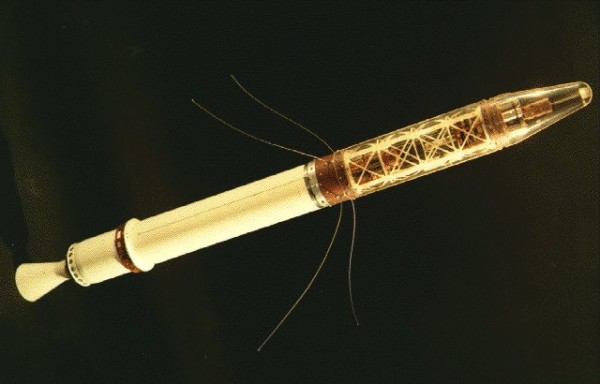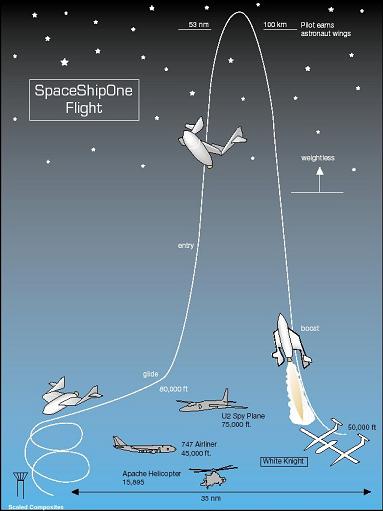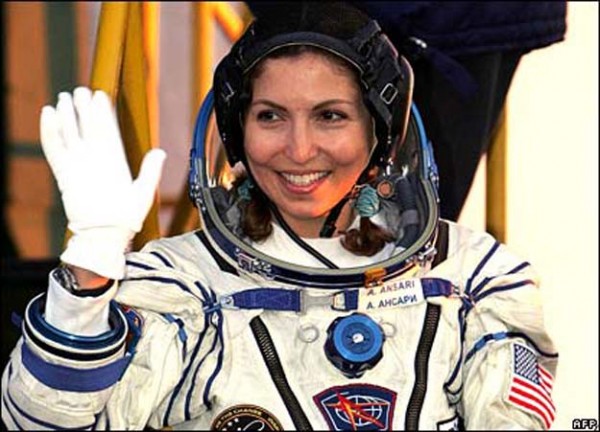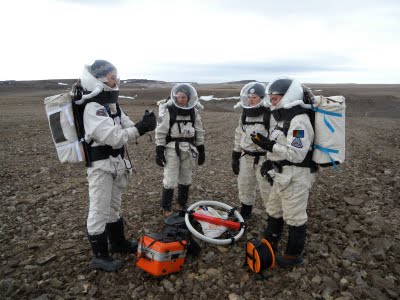"I have loved the stars too fondly to be fearful of the night." -Galileo
There should be a big vote going on today about the future of spaceflight in America. Obama has outlined his new space policy, and has called for the commercial sector to step up and get involved in spaceflight, particularly in low-orbit, satellite, and space launch technologies.

This is going to be a hard sell to a lot of politicians, of course, who will stand to lose many government jobs as programs like Constellation and the Space Shuttle go away.

But the payoff is potentially huge, as private industry looks very eager to take over these tasks. (Check out the commercial spaceflight federation; there's plenty of interest and capability here.) This transition, mind you, has happened before. In the early days, NASA was pretty much entirely a military extension of the government. The first pictures of the Earth from space were from White Sands Missile Base in New Mexico in the 1940s, taken from aboard V-2 rockets.

The US satellites and launch vehicles that made NASA famous were old military projects, starting with Explorer I, which predates even the formation of NASA!

Although NASA was declared to be a civilian organization, the military involvement has remained huge. Of the 12 people who've walked on the Moon, 11 of them are former military. (Jack Schmitt, the last man to set foot on the Moon, was the only civilian.)
But times have changed.

A few years ago, the Ansari X-Prize was awarded to SpaceShipOne, a venture from private industry that launched a human safely up into space. And the era of Commercial Spaceflight had begun.
The X-Prize was named after Anoushah Ansari, the first female private space explorer, and the first astronaut of Iranian descent.

Why do I bring this up? Because it isn't just the spacecraft, the payloads, and the launches that are going to be private in the future.
The astronauts are going to be private, too!
That's right, private astronauts.

So who are these private astronauts going to be? And what types of missions and duties are they going to perform? Well, if you search for commercial astronaut on google, the first non-Wikipedia site you get is astronauts4hire.org, founded in April of this year.

There's an interview with their President up at NewScientist, which I encourage you to read to get some basic answers to such questions as:
- Are commercial space flights really such a big deal for science?
- Being an astronaut is one of the pinnacles of human achievement today, but will it become a lot more like a regular job in future?
- What kind of science does sub-orbital flight allow you to do?
- What's the idea behind Astronauts4Hire?
But I have a special treat for you. These are the first 17 aspiring commercial astronauts. And they have agreed to answer your questions, Starts With A Bang readers!
So here's the deal. Ask them! (That's what the comments here are for!) Ask the big questions that you want a commercial astronaut to answer. They can be easy, hard, political, scientific, personal... whatever you want. If you see a question you like, second (or third, etc.) it. And at the start of next week, I'll select and send the five best questions based on your suggestions and recommendations to them! And I'll post the (unedited) answers here as soon as I get them.
So here's your big chance. Ask a commercial astronaut anything! What do you want to know?

What type of background/training do you have?
What kind of salary range is there?
Can you please list a few of the different job positions available and some specific tasks each are required to perform?
But last and more importantly, what is your favorite type of hot pockets?
The mention of the Iranian astronaut reminded me - I had a ball when I heard the announcement of "Jews in Space" ... I was a bit disappointed that it wasn't Mel Brooks following up on The History of the World.
One other good thing that US congress can do is to allow US taxpayers' money to go into buying launch services from other nations. Such competition should (in principle) encourage better prices for a launch. Is Lockheed really that much better than, say, the Chinese or Indian launch providers? (I don't mention the Japanese because their launches cost a fortune.) Are Delta-IVs really better than an Arianne-V? We do have numerous military launches though, so members of ULA will still get jobs.
I have two questions, both centering around Mars, which I know is very much on the minds of modern astronauts and space agencies. As a commercial astronaut who might be hired indepedently for a Mars mission, would you go on any craft, even if it wasn't your own country sponsoring the journey? Also, would you go if you knew it was a one-way trip?
I couldn't be an astronaut because the second I put a helmet on my nose would start itching and I wouldn't be able to reach it. Can you scratch yourself in a spacesuit? Are there any tricks or do you just put up with the itch the entire time you are suited up?
With the adoption of this new commercial taxi system to get personnel into space and so the delivery of human cargo is no longer needed to be attached to the launching of bulky,massive cargo like propellant, structures, shielding and other supplies, what do you think will happen to the systems by which we deliver cargo to orbit?
Question 1: What are your primary motivations for being an astronaut? Science? Engineering? Exploration? Adventure? Patriotism? Beauty?
Question 2: What missions would you consider too dangerous? How much risk are you willing to take? How does your answer change depending on the nature of a mission?
Regarding commercial astronauts, do you get weekends off? What about fly-in, fly-out for jobs, is that possible?
I didn't know NASA was so much military organization. Interesting.
Neither did I dominic. But it makes perfect sense.
I have two questions, both centering around Mars, which I know is very much on the minds of modern astronauts and space agencies. As a commercial astronaut who might be hired indepedently for a Mars mission, would you go on any craft, even if it wasn't your own country sponsoring the journey? Also, would you go if you knew it was a one-way trip?
When you were a kid, what did you want to be when you grew up?
And here are some questions that have been sent to me privately:
-What's a Commercial Astronaut, and how does the "commercial" Astronaut differ from other Astronauts, from Cosmonauts and Space Tourists?
-As commercial astronauts, will the private sector be the primary factor in determining what sort of missions are conducted (if not, then whom and how)?
-Do the requirements and training differ from NASA's?
-What would be some of the personal goals the commercial astronauts hope to achieve, both individually and as a new facet of the space industry?
-What sort of freedoms will commercial space-faring gain or lose over government-supervised alternatives?
-How long will it take before a cable network attempts the first in-space reality series ("LEO Rules" or "America's Next Top Dehydrated Supplement Chef")?
-Where do I apply to be a commercial astronaut?
-Being privatized, profit will obviously be the main drive for this industry. My question is, Other than being able to sell tickets to the stratosphere, what are the long term plans? Are any exploratory mining missions being talked about? Is there something other than the tourism aspect they will be attempting to be profitable at?
Um, excuse me tütüne son, but why did you repeat my question?? Your referenced web page is a spam site >:\
Hot pockets didn't make the list?! That's disconcerting.
what is a list of all the astronomy jobs?
what does the astronaut does before they going to launch?
where will they store food in rocket?,How will they take and eat it?,In which things they will keep and eat the food?
how much years we need to study for astronaut?